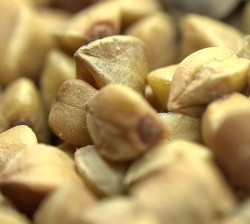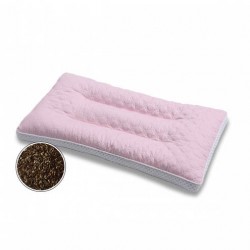Allergen friendly
Home » Allergen friendly
Looking forward to seeing you at the Markets!
Buckwheat is allergen friendly
Although true gluten allergy is rare, the number of gluten intolerant people is increasing, showing symptoms of a headache, stomachache or flatulence when consuming wheat which contains gluten.
Buckwheat is gluten-free and hypoallergenic, containing very little allergy-triggering proteins, and what is best it is also helping alleviate existing allergies. A study conducted in Korea and published in the International Immunopharmacology journal suggests that buckwheat extracts have the ability to inhibit histamine and cytokine gene expression in the mast cells, showing excellent anti-allergic action.

A Superfood for Allergy Sufferers
While celiac disease (true gluten allergy) is still relatively rare, an increasing number of people suffer from gluten intolerance, which may manifest itself through a variety of symptoms. Upon eating gluten-containing grains such as wheat, gluten intolerant people may experience, for example, headaches, migraines, abdominal pain and distension, flatulence, IBS, depression, or skin rashes.
Despite its name, buckwheat is not related to wheat, and it does not contain the wheat protein gluten, either. It is also listed as a hypoallergenic food, meaning that it is low in other allergy-triggering proteins as well and therefore unlikely to cause allergic reactions in most humans. But that's not the only reason why people with allergies might want to introduce buckwheat porridge or steamed buckwheat groats into their diet – turns out, buckwheat may also help alleviate existing allergies. A Korean study published in the journal International Immunopharmacology suggests that buckwheat grain extract has strong anti-allergic action, probably due to its ability to inhibit histamine release and cytokine gene expression in the mast cells.

Suppressing Allergic Responses
Certain grains found in the grass family contain the protein gluten, which can trigger digestive tract upset and diarrhea in susceptible individuals. This includes those with the relatively rare condition known as celiac disease, as well as gluten-intolerant people. Symptoms can include headaches, abdominal pain and distension, flatulence, irritable bowel syndrome (IBS), depression, and skin rashes.
Buckwheat, however, is completely gluten-free, making it a great grain substitute for gluten-sensitive persons.
Those with allergies not related to gluten may be interested in buckwheat for a different reason. Research published in the journal International Immunopharmacology suggests that buckwheat extract has a strong antiallergic activity, which may be the result of buckwheat’s capacity to inhibit histamine release and block cytokine gene expression in mast cells.

It's anti-inflammatory & reduces allergies
Buckwheat is a natural anti-inflammatory and also a natural antihistamine due to its high antioxidant and Vitamin E content. Because of its hypoallergenic properties, buckwheat shells are often used in bed stuffings. One study also showed that buckwheat was effective in treating allergy induced asthma in children by 50 percent.






